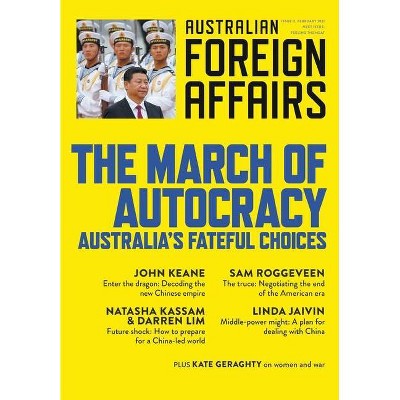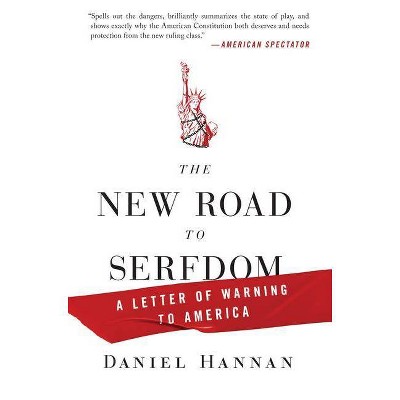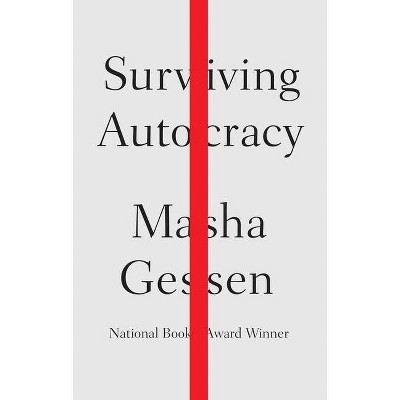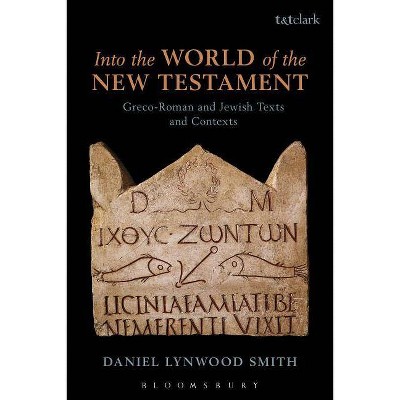The New Autocracy - by Daniel Treisman (Paperback)
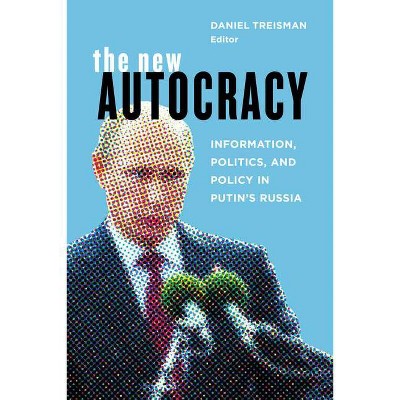
Similar Products
Products of same category from the store
AllProduct info
<p/><br></br><p><b> About the Book </b></p></br></br>"The result of a two-year collaboration between top Russian experts and Western political scholars, Autocracy explores the complex roles of Russia's presidency, security services, parliament, media and other actors. The authors argue that Putin has created an "informational autocracy," which relies more on media manipulation than on the comprehensive repression of traditional dictatorships. The fake news, hackers, and trolls that featured in Russia's foreign policy during the 2016 U.S. presidential election are also favored tools of Putin's domestic regime--along with internet restrictions, state television, and copious in-house surveys. While these tactics have been successful in the short run, the regime that depends on them already shows signs of age: over-centralization, a narrowing of information flows, and a reliance on informal fixers to bypass the bureaucracy. The regime's challenge will be to continue to block social modernization without undermining the leadership's own capabilities." -- Publisher's website<p/><br></br><p><b> Book Synopsis </b></p></br></br><p><b>Corruption, fake news, and the "informational autocracy" sustaining Putin in power</b></p><p>After fading into the background for many years following the collapse of the Soviet Union, Russia suddenly has emerged as a new threat--at least in the minds of many Westerners. But Western assumptions about Russia, and in particular about political decision-making in Russia, tend to be out of date or just plain wrong.</p><p>Under the leadership of Vladimir Putin since 2000, Russia is neither a somewhat reduced version of the Soviet Union nor a classic police state. Corruption is prevalent at all levels of government and business, but Russia's leaders pursue broader and more complex goals than one would expect in a typical kleptocracy, such as those in many developing countries. Nor does Russia fit the standard political science model of a "competitive authoritarian" regime; its parliament, political parties, and other political bodies are neither fakes to fool the West nor forums for bargaining among the elites.</p><p>The result of a two-year collaboration between top Russian experts and Western political scholars, Autocracy explores the complex roles of Russia's presidency, security services, parliament, media and other actors. The authors argue that Putin has created an "informational autocracy," which relies more on media manipulation than on the comprehensive repression of traditional dictatorships. The fake news, hackers, and trolls that featured in Russia's foreign policy during the 2016 U.S. presidential election are also favored tools of Putin's domestic regime--along with internet restrictions, state television, and copious in-house surveys. While these tactics have been successful in the short run, the regime that depends on them already shows signs of age: over-centralization, a narrowing of information flows, and a reliance on informal fixers to bypass the bureaucracy. The regime's challenge will be to continue to block social modernization without undermining the leadership's own capabilities.</p><p/><br></br><p><b> From the Back Cover </b></p></br></br><p>Corruption, fake news, and the "informational autocracy"</p><p>After fading into the background in the years following the Soviet Union's collapse, Russia now has emerged as a new threat--at least in the minds of many Westerners. But Western assumptions about Russia, and in particular about political decisionmaking there, tend to be out of date or just plain wrong.</p><p>Under Putin, Russia fits the mold of neither a reduced Soviet Union nor a classic police state. And while corruption is prevalent at all levels of government and business, Russia's leaders pursue broader and more complex goals than expected in a typical kleptocracy. Nor is Russia exactly a "competitive authoritarian" regime; its parliament, political parties, and other political bodies are neither fakes to fool the West nor forums for bargaining among the elites.</p><p><i>The New Autocracy</i> brings together top Russian experts and Western political scholars who explore the complex roles of Russia's presidency, security services, parliament, media, and other actors. They argue that Putin has created an "informational autocracy," which relies more on media manipulation than on the comprehensive repression of traditional dictatorships.</p><p>Fake news, hackers, and trolls--set loose during the 2016 U.S. presidential election--are also favored tools of Putin's domestic regime, along with internet restrictions and state television. While successful in the short run, these tactics have a shelf life. And the regime that depends on them already shows signs of age: overcentralization, a narrowing of information flows, and a reliance on informal fixers to bypass the bureaucracy. Can Russia's rulers continue to block social modernization without undermining their own capabilities?</p><p/><br></br><p><b> Review Quotes </b></p></br></br><br>This edited work pulls together the thoughts of academic specialists in Russia and the US. The authors rely on interviews, official records, and important data in reaching their insightful conclusions. Reflections on the new authoritarianism after the 2012 presidential elections and 2014 Crimean crisis are penetrating. The temporary abolition of gubernatorial elections as well as the lengthening of the terms of the president and members of the Duma are key illustrations of that evolution toward authoritarianism. Analysis of significant governmental institutions provides further information that helps build a realistic picture of the situation today. Recommended.--<i>CHOICE</i><br><p/><br></br><p><b> About the Author </b></p></br></br><p><b>About the Contributors</b></p><p><b>Maxim Ananyev</b> is a Ph.D. student in the Department of Political Science, University of California, Los Angeles.<p><b>Anna Kachkaeva</b> is a Professor in the Faculty of Communications, Media, and Design at the Higher School of Economics, Moscow, and a well-known media analyst. From 1994-2012, she hosted and participated in various programs on Radio Svoboda.</p><p><b>Natalia Lamberova</b> is a Ph.D. student in the Department of Political Science, University of California, Los Angeles.</p><p><b>Maria Lipman</b> is Editor-in-Chief of <i>Counterpoin</i>t (George Washington University) and a regular contributor to <i>The New Yorker</i> online. A former analyst at the Carnegie Moscow Center, she was the co-founder and deputy editor of two Russian weekly magazines, <i>Itogi</i> and <i>Ezhenedel'ny zhurnal</i>.</p><p><b>Evgenia Nazrullaeva</b> is a Ph.D. student in the Department of Political Science, University of California, Los Angeles.</p><p><b>Ben Noble</b> is a Junior Research Fellow at New College, University of Oxford, Senior Researcher in the Laboratory for Regional Political Studies at the Higher School of Economics (Moscow), and recipient of the 2017 Walter Bagehot Prize for the best doctoral dissertation in the field of Government and Public Administration, awarded by the Political Studies Association. </p><p><b>Ella Paneyakh</b> is a Docent in the Department of Sociology, Higher School of Economics-St. Petersburg. Previously, she was a Professor in the Department of Political Science and Sociology, and Director of the Institute for the Rule of Law, at the European University at St. Petersburg.</p><p><b>Nikolay Petrov</b> is a Professor and Head of the Laboratory of Methodology of Regional Development Evaluation, at the Higher School of Economics, Moscow, as well as the Director of the Center for Political-Geographic Research. Previously, he served as the Director of the Society and Regions Project at the Carnegie Moscow Center, and in the early 1990s as an advisor to the Russian parliament, government, and presidential administration.</p><p><b>Michael Poyker</b> is a Ph.D. student in the Anderson School of Management, University of California, Los Angeles.</p><p><b>Michael Rochlitz</b> is a research fellow in the Institute of Sociology at the Ludwig-Maximilian University in Munich, and a former assistant Professor in the Department of Politics, Higher School of Economics, Moscow.</p><p><b>Kirill Rogov</b> is an expert on Russian politics and economics, and a member of the Boards of the Liberal Mission Foundation (Moscow) and the Levada Center. In 2007-16, he was a Senior Research Fellow at the Gaidar Institute for Economic Policy. He was a Co-founder and Editor-in-chief of the news and opinion portal "Polit.Ru," as well as Deputy Editor-in-chief of <i>Kommersant</i> daily. He is a columnist in leading Russian media such as <i>Vedomosti, Novaya Gazeta, </i>, and RBC.</p><p><b>Dina Rosenberg</b> is an Assistant Professor in the Department of Politics, Higher School of Economics, Moscow.</p><p><b>Ekaterina Schulmann</b> is a Senior Lecturer (associate professor), teaching legislative process at the School of Public Policy of the Russian Presidential Academy of National Economy and Public Administration. She is the author of the book <i>Legislation as a Political Process</i> (MSPS, 2014) and a regular contributor to <i>Vedomosti, The New Times, Republica, </i> Colta.ru, Carnegie.ru and others. Previously, she worked as a deputy's assistant, political faction analyst, and expert in the Analytical Department of the Russian State Duma.</p><p><b>Anton Sobolev</b> is a Ph.D. student in the Department of Political Science, University of California, Los Angeles.</p><p><b>Andrei Soldatov</b> is the Founder and Editor of Agentura.ru, an information hub on Russia's intelligence agencies. A frequent commentator on terrorism and intelligence topics for the national and international media, he is the co-author of <i>The Red Web</i> (New York: Public Affairs) and <i>The New Nobility</i> (New York: Public Affairs).</p><p><b>Konstantin Sonin</b> is a Professor in the Harris School of Public Policy, University of Chicago, and a Research Fellow at the Centre for Economic Policy Research (CEPR). A columnist for <i>Vedomosti</i> and <i>The Moscow Times</i>, he was previously a Professor of Economics and Vice-Rector at the Higher School of Economics, Moscow, and a Professor and Vice-Rector a the New Economic School, Moscow.</p><p><b>Daniel Treisman</b> is a Professor of Political Science at the University of California, Los Angeles, and a Research Associate at the National Bureau of Economic Research. In Russia, he is a member of the International Advisory Committee of the Higher School of Economics (Moscow). His latest book is <i>The Return: Russia's Journey from Gorbachev to Medvedev</i> (The Free Press, 2011).</p><p><b>Alexei Zakharov</b> is an Assistant Professor of Economics, at the Higher School of Economics, Moscow, and a columnist for <i>Vedomosti.</i></p>
Price History
Cheapest price in the interval: 35.99 on November 8, 2021
Most expensive price in the interval: 35.99 on December 20, 2021
Price Archive shows prices from various stores, lets you see history and find the cheapest. There is no actual sale on the website. For all support, inquiry and suggestion messages communication@pricearchive.us

